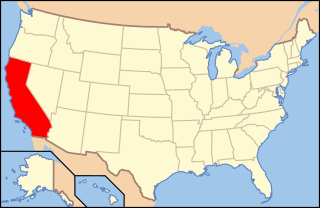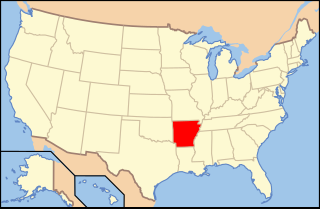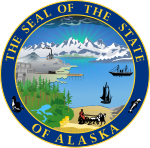
The University of Alaska Anchorage (UAA) is a public university in Anchorage, Alaska, United States. UAA also administers four community campuses spread across Southcentral Alaska: Kenai Peninsula College, Kodiak College, Matanuska–Susitna College, and Prince William Sound College. Between the community campuses and the main Anchorage campus, roughly 15,000 undergraduate, graduate, and professional students are currently enrolled at UAA. It is Alaska's largest institution of higher learning and the largest university in the University of Alaska System.

Unisex public toilets are public toilets that are not separated by sex or gender.

Family First New Zealand is a conservative Christian lobby group in New Zealand. It was founded in March 2006 by former Radio Rhema talkback radio host and South Auckland social-worker Bob McCoskrie who continues to be its National Director. Its 2006 stated objectives were to "seek to influence public policy affecting the rights and protection of families and promote a culture that values the family". In 2009 Victoria University religious studies professor Paul Morris said Family First was "successfully broadening the Christian agenda in New Zealand politics in a way never seen before". In 2020 Family First was described as "New Zealand's most formidable conservative campaigners". Family First was established by a trust deed under the Charitable Trusts Act 1957 in 2006, was registered as a charity in 2007 and deregistered in 2022.
In the United States, the rights of transgender people vary considerably by jurisdiction. In recent decades, there has been an expansion of federal, state, and local laws and rulings to protect transgender Americans; however, many rights remain unprotected, and some rights are being eroded. Since 2020, there has been a national movement by conservative and right-wing politicians and organizations against transgender rights. There has been a steady increase in the number of anti-transgender bills introduced each year, especially in Republican-led states.

California is seen as one of the most liberal states in the U.S. in regard to lesbian, gay, bisexual, transgender, and queer (LGBTQ) rights, which have received nationwide recognition since the 1970s. Same-sex sexual activity has been legal in the state since 1976. Discrimination protections regarding sexual orientation and gender identity or expression were adopted statewide in 2003. Transgender people are also permitted to change their legal gender on official documents without any medical interventions, and mental health providers are prohibited from engaging in conversion therapy on minors.
Direct democracy refers to decision making or direct vote a proposal, law, or political issue by the electorate, rather than being voted on by representatives in a state or local legislature or council.

Lesbian, gay, bisexual, transgender, and queer (LGBTQ) people in the U.S. state of Arkansas face legal challenges not experienced by non-LGBTQ residents. Same-sex sexual activity in Arkansas was decriminalized in 2001 and legally codified in 2005. Same-sex marriage became briefly legal through a court ruling on May 9, 2014, subject to court stays and appeals. In June 2015, the U.S. Supreme Court ruled in Obergefell v. Hodges that laws banning same-sex marriage are unconstitutional, legalizing same-sex marriage in the United States nationwide including in Arkansas. Nonetheless, discrimination on the basis of sexual orientation and gender identity was not banned in Arkansas until the Supreme Court banned it nationwide in Bostock v. Clayton County in 2020.

Lesbian, gay, bisexual, transgender, and queer (LGBTQ) rights in the U.S. state of Alaska have evolved significantly over the years. Since 1980, same-sex sexual conduct has been allowed, and same-sex couples can marry since October 2014. The state offers few legal protections against discrimination on the basis of sexual orientation and gender identity, leaving LGBTQ people vulnerable to discrimination in housing and public accommodations; however, the U.S. Supreme Court's ruling in Bostock v. Clayton County established that employment discrimination against LGBTQ people is illegal under federal law. In addition, four Alaskan cities, Anchorage, Juneau, Sitka and Ketchikan, representing about 46% of the state population, have passed discrimination protections for housing and public accommodations.

In the U.S. Virgin Islands, Lesbian, gay, bisexual, and transgender (LGBT) rights have evolved substantially in recent years. Same-sex sexual activity has been legal since 1985. The region also provides explicit legal protections against discrimination for LGBTQ residents since December 2022. Following the Supreme Court's ruling in Obergefell v. Hodges on June 26, 2015, which found the denial of marriage rights to same-sex couples unconstitutional, same-sex marriage became legal in the islands.
Proposition 1 was a referendum held on November 3, 2015, on the anti-discrimination ordinance known as the Houston Equal Rights Ordinance (HERO). The ordinance was intended to improve anti-discrimination coverage based on sexual orientation and gender identity in Houston, specifically in areas such as housing and occupation where no anti-discrimination policy existed. Proposition 1 asked voters whether they approved HERO. Houston voters rejected Proposal 1 by a vote of 61% to 39%.
A bathroom bill is the common name for legislation or a statute that denies access to public toilets by gender or transgender identity. Bathroom bills affect access to sex-segregated public facilities for an individual based on a determination of their sex as defined in some specific way, such as their sex as assigned at birth, their sex as listed on their birth certificate, or the sex that corresponds to their gender identity. A bathroom bill can either be inclusive or exclusive of transgender individuals, depending on the aforementioned definition of their sex.
South Dakota House Bill 1008, also known as House Bill 1008, HB 1008, and the Bathroom Bill, was a bill passed by the South Dakota Legislature in 2016 and vetoed by Governor of South Dakota Dennis Daugaard. The purpose of the bill was to restrict bathroom and locker room use by transgender students to facilities that matched their sex assigned at birth, not their gender identity. It was the first such bathroom bill to be passed in a state legislature in the U.S. and sparked a chain of similar bills across the nation. HB 1008 was opposed by several LGBT rights organizations, such as the HRC, GLSEN, and ACLU.
Title IX of the United States Education Amendments of 1972 prohibits discrimination "on the basis of sex" in educational programs and activities that receive financial assistance from the federal government. The Obama administration interpreted Title IX to cover discrimination on the basis of assigned sex, gender identity, and transgender status. The Trump administration determined that the question of access to sex-segregated facilities should be left to the states and local school districts to decide. The validity of the executive's position is being tested in the federal courts.

G.G. v. Gloucester County School Board was a court case dealing with transgender rights in the United States. The case involved a transgender boy attending a Virginia high school, who sued the local school board after he was forced to use girls' restrooms based on his assigned gender under the school board's policy. While the Fourth Circuit ruled in favor of the student based on Obama administration policy related to Title IX protections, the election of Donald Trump changed the underlying policy. A pending hearing before the Supreme Court of the United States was vacated and the case was sent back to the Fourth Circuit.
The legal and regulatory history of transgender and transsexual people in the United States begins in the 1960s. Such legislation covers federal, state, municipal, and local levels, as well as military justice. It reflects broader societal attitudes which have shifted significantly over time and have impacted legislative and judicial outcomes.

The Massachusetts Gender Identity Anti-Discrimination Initiative is a state-wide referendum passed by Massachusetts voters in the 6 November 2018 mid-term election that prohibits discrimination in public accommodations on the basis of gender identity. The vote upholds language which was already present in the state anti-discrimination statute, defeating an attempt to veto it by public referendum. It is the first state-wide anti-discrimination statute passed by referendum supporting transgender rights in the United States.
Since 2015, Township High School District 211, a public school district of the Chicago suburbs, has been the epicenter of multiple controversies surrounding its policies toward transgender student locker room access. Since January 2020, the district has implemented a policy of unrestricted locker room access corresponding to the gender identity of each student.

The 2021 Anchorage mayoral election was held on April 6, 2021, to elect the mayor of Anchorage, Alaska. As no candidate received at least 45% of the vote in the first round, the two candidates with the highest vote share, Forrest Dunbar and Dave Bronson, advanced to a runoff on May 11. The election was officially nonpartisan. Incumbent independent acting mayor Austin Quinn-Davidson, first appointed to the position in October 2020, was eligible to run for reelection to a full term, but did not run. The deadline to register to vote in the first round was March 7. Mail-in ballots were sent out starting on March 15. On May 21, 2021, after a narrow loss, Dunbar conceded the race to Bronson. Bronson was sworn in on July 1.
The Hands Across the Aisle Coalition (HATAC) is an organization founded in 2017 and operating primarily in the United States, known for its opposition to transgender rights. The organization aims to connect trans-exclusionary radical feminists with conservative Christian anti-LGBT groups, ostensibly "tabling [their] ideological differences" to "oppose gender identity ideology". The organization actively supports anti-LGBT groups in legislation targeting transgender rights.

The Facility Requirements Based on Sex Act, also known as Committee Substitute for House Bill 1521 , is a 2023 Florida anti-trans bathroom law which mandates that individuals must use restrooms, locker rooms, and changing facilities that correspond to their sex assigned at birth in some public, private and state-licensed facilities. It is one of two states (Utah) to make it a misdemeanor, in certain circumstances, for transgender people to use bathrooms or facilities consistent with their gender identity. It is the most populous state in the United States with a bathroom law. The law has generated significant controversy and legal challenges.












